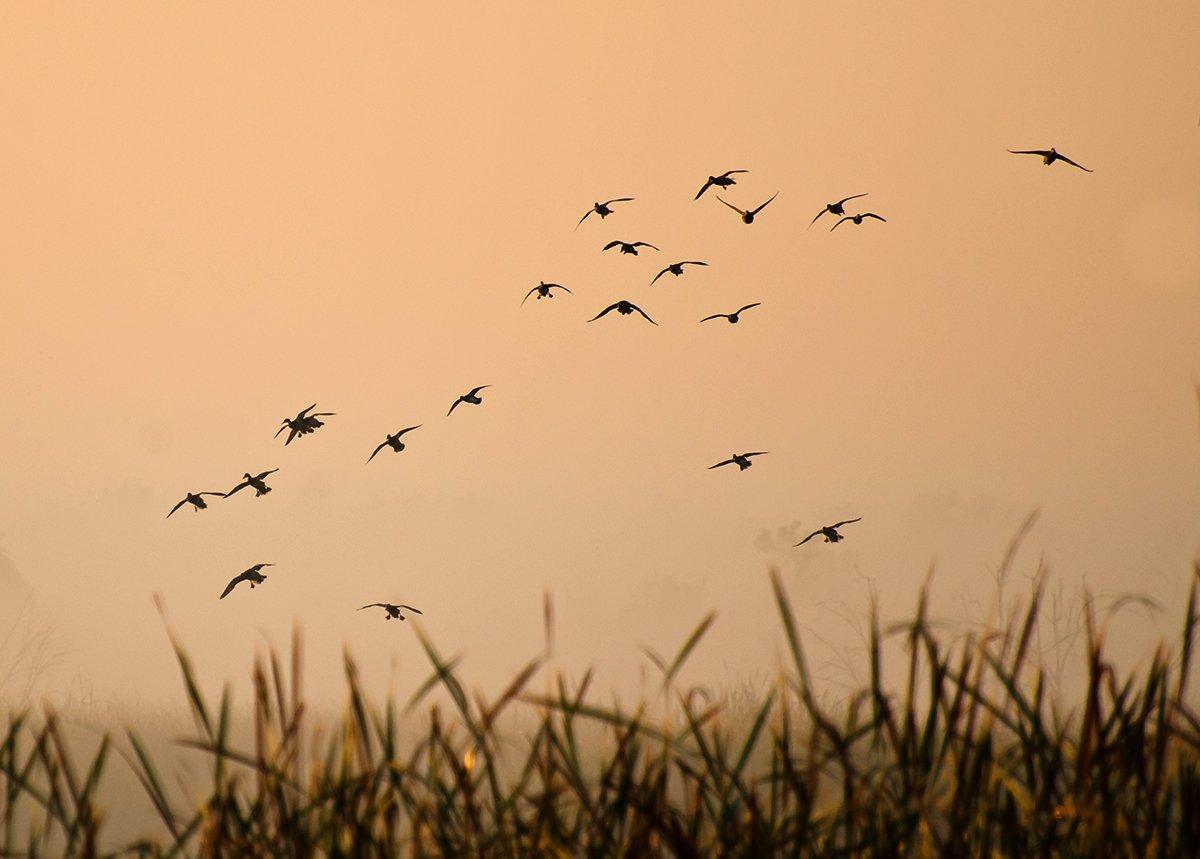These birds can ruin your day — unless you turn the tables on them

They don't always play by the rules. In fact, they often seem to invent new guidelines. Let's look at four frustrating duck-behavior scenarios and identify some potential fixes.
Behinders
Every duck hunter has been surprised by teal, woodies, divers and even mallards that zipped over in range from behind. If you're observant and have quick reflexes, you can usually still shoot those birds. Often, though, you watch them fly out of range or, worse, get tempted into taking a low-percentage shot. This situation is especially common during days with little wind or on opening day, when birds fly furiously about the marsh to avoid pressure.
Stay on your toes to avoid being surprised. But also, admit when you blow a chance, and don't take a poor shot. Shooting up the skirt of a straightaway target at 20 yards is far different than firing at the same bird at 40 paces. And even if you kill the duck, its momentum will take it several yards farther, making it tougher to mark and recover the bird.
Ideally, hunt with a partner. You can watch the front while he scans the sky behind you. Communicate constantly so you can both capitalize on opportunities.
Short-Stoppers
The flock turns at your calling, spies your decoys, circles wide and … plops down 70 yards away. It happens every day, especially on big water or ag fields, sometimes for unexplained reasons.
Maybe you're not concealed well enough. Double-check your hide, and tweak it if necessary. Also, examine your decoy spread. Does it look natural and relaxed? Is there a sufficiently large landing hole for big flocks of mallards or honkers? If you're hunting divers, does the spread feature a tail that stretches downwind, inviting the birds to fly toward the main part of the rig? What about spinning-wing decoys? Often, switching them off as ducks approach helps birds finish better.
Sometimes, the answer is simple: You're not on the X. If possible, move to the hot landing zone. If not, double-check every variable, and make the best of it.
Endless Circlers
Some flocks tease you constantly, circling or hovering out of range and never committing. Meanwhile, you hunker down, eyes to the sky, huffing and puffing on your call.
Ducks often do this in high-pressure situations, especially weekends or during the opener. They want to land, but their instincts tell them something isn't quite right. Again, check your cover and decoy spread. Also consider the scenario. If the marsh is full of hunters, odds are their spreads and approaches are pretty similar. Be different, and try to give ducks an option that screams safety. That might entail thinning out your decoy rig to just a few blocks and cutting back on your calling. Or, you might go with an especially large spread that looks as if every duck in the flyway wants your pothole.
Whatever your approach, don't be tempted by high circlers. Inevitably, someone else will convince themselves the birds are in range and sky-blast at them, sailing or crippling ducks. Be smart and patient instead.
Birds That Study the Regs
Heavily pressured areas also prompt another phenomenon: Ducks leave en masse five minutes before legal shooting and don't return until five minutes after. Meanwhile, you wait for hours, hoping in vain that birds return during daylight. (Hint: They won't.)
It's difficult to fix this problem. You can search like crazy to find where birds go at daylight, but that doesn't always work. Educated ducks are very good at finding safe havens. Or, you can limit your hunting to bad weather or days when fronts approach, hoping that ducks return earlier or that fresh migrants arrive. Again, you won't always guess correctly.
It's usually best to avoid such situations. Work harder to find spots with less hunting pressure. Scout more than you hunt, looking for hard-to-reach potholes or remote grain fields far from the crowds. Yeah, that requires lots of effort and windshield time, but it's far more enjoyable than watching the marsh clear out at zero-dark-thirty every day.







